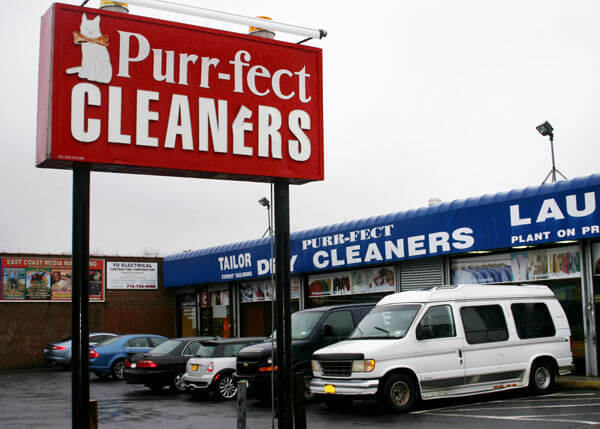By Rich Bockmann
The state Department of Environmental Conservation has detected ground contamination underneath a Laurelton dry cleaner adjacent to IS/PS 270 and the St. Luke Baptist Church and said the potential exists for the contamination to affect the air quality inside the cleaner as well as possibly off-site.
At the end of January, the DEC identified the Purr-fect Dry Cleaners, at 232-17 Merrick Blvd., as an inactive hazardous-waste disposal site under the state Superfund program, which identifies and lays out a remediation plan for toxic spills. And while the department said the contamination does not pose a significant public health threat, the DEC’s health assessment revealed the contamination could affect the air quality inside the cleaner.
“Volatile organic compounds in the groundwater may move into the soil vapor (air spaces within the soil), which in turn may move into overlying buildings and affect the indoor air quality,” the assessment read. “The potential exists for site occupants within the dry cleaner to inhale site contaminants based on sub-slab soil vapor samples.”
The DEC said it will need to conduct an evaluation of the potential for soil vapor to spread offsite, but did not elaborate on how far it might possibly stretch.
The owner of the dry cleaner, Mi Young Yi, could not be reached for comment. Yi purchased the property in early 2012, and the DEC said it was at that time that a consultant investigating the site notified the department of chlorinated solvents in the ground.
The DEC later found concerning levels of Tetrachloroethene and other compounds associated with fuel oil in on-site groundwater.
The next step is for the DEC, along with the Department of Health, to conduct an investigation to discover the full nature and extent of the contamination.
Once the departments come up with a proposed plan to clean up the site, the public will be invited to weigh in.
The DEC has 97 cleanup sites around the borough, mostly in Long Island City.
The department said the contamination does not pose a threat to drinking water since residents get their water from the city’s upstate water supply and not through wells.
The city Department of Environmental Protection is considering opening closed wells in southeast Queens in 2018 when one of the upstate aqueducts that carries water to the city will be shut down for repairs.
Reach reporter Rich Bockmann by e-mail at rbockmann@cnglocal.com or by phone at 718-260-4574.


































